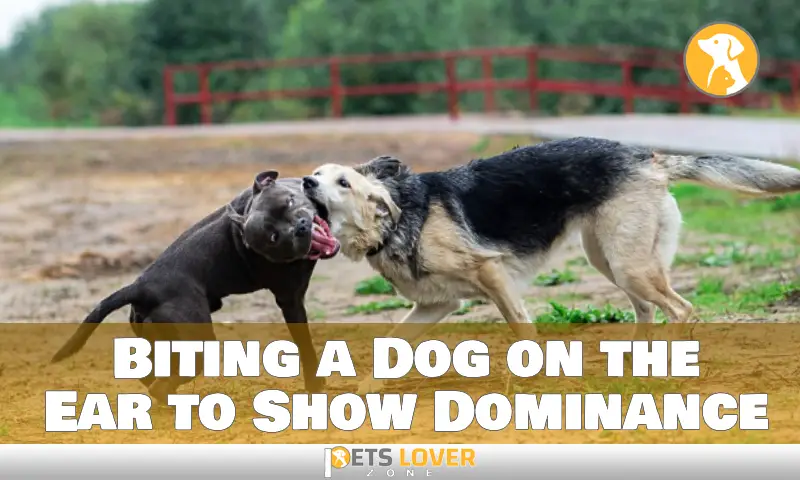To train a Doberman puppy not to bite, provide consistent and positive reinforcement using techniques like redirection and chew toy training. Doberman puppies have a natural instinct to bite and nip, which can be problematic if left unaddressed.
However, with the right training, you can teach your Doberman puppy to control its biting behavior. The key is to provide consistent and positive reinforcement, focusing on redirecting their biting towards appropriate chew toys. By teaching them what is acceptable to bite on and rewarding good behavior, you can help your puppy learn to control their bite strength and mouth discipline.
We will explore effective techniques to train a Doberman puppy not to bite and provide tips for a successful training process.
Reasons Behind Doberman Puppies’ Biting
Doberman puppy biting is a common issue during their early months. This behavior is primarily due to their teething process. The puppy’s mouth may be sore and uncomfortable, leading it to bite and chew on objects, including hands and feet.
Additionally, Doberman puppies are naturally curious and explore their environment using their mouths. They may bite or nip as a way of investigating and learning about their surroundings. Their playful behavior also contributes to the biting problem. Puppies interact with their littermates through biting and wrestling, and they may continue this behavior with humans.
Training a Doberman puppy not to bite requires consistent redirection, positive reinforcement, and the use of appropriate chew toys. It’s crucial to start early and be patient with the process, as puppies need time to learn proper bite inhibition.
Potential Consequences Of An Untrained Doberman Puppy’s Biting
Potential consequences of an untrained Doberman puppy’s biting include injury to humans and other animals. This can result in physical harm and emotional distress for both the victims and the puppy’s owners. Additionally, the puppy may cause damage to furniture and other household items while biting.
These can be expensive to replace or repair. Furthermore, if the biting behavior is not addressed and corrected early on, it can lead to more severe behavioral issues in the dog’s adulthood. Such issues may include aggression, anxiety, and difficulty socializing with other animals and people.
Proper training and socialization are crucial to ensuring a well-behaved and safe Doberman puppy. By addressing and preventing biting behaviors from the start, owners can create a harmonious and enjoyable environment for everyone involved.
Teaching Bite Inhibition To Doberman Puppies

Doberman puppies can be prone to biting, but with proper training, this behavior can be curbed. Redirect their biting to appropriate toys to teach bite inhibition. Use positive reinforcement to reward calm behavior and discourage rough play. Consistency is key to training them not to bite.
Start by offering a toy whenever your puppy tries to mouth or nibble on you. When they redirect their biting toward the toy, praise and reward them. If they persist in biting you, calmly remove yourself from their reach for a short time-out.
Repeat this process consistently to teach them that biting is not acceptable. With patience and consistent training, you can train your Doberman puppy not to bite and promote a harmonious relationship.
Establishing Boundaries And Socializing Your Doberman Puppy
Establishing boundaries and socializing with your Doberman puppy is crucial for preventing biting behaviors. Consistent house rules and clear boundaries help your puppy understand what is acceptable. Socializing with people and other pets exposes your puppy to different situations and teaches proper behavior.
Introduce your puppy to controlled environments, gradually increasing the level of distraction. This helps them learn to stay calm and focused. Always reward good behavior and redirect any biting tendencies toward appropriate chew toys. By consistently reinforcing these practices, you can effectively train your Doberman puppy not to bite.
Command Training To Prevent Doberman Puppy Biting
Teaching basic commands like “sit” and “stay” is crucial in preventing a Doberman from biting. Consistent and reward-based training helps establish desired behaviors. By enforcing command obedience, you can effectively discourage biting tendencies
Managing The Environment To Discourage Biting
Training a Doberman puppy not to bite involves managing the environment by providing appropriate chew toys. Taste deterrents can be used on prohibited items to discourage biting. It is important to create safe spaces for relaxation where the puppy feels comfortable and secure.
By carefully designing the environment and offering suitable alternatives, you can redirect the puppy’s biting behavior. This helps them understand what is acceptable to chew on and what is not. Consistency and patience are key when training a Doberman puppy and teaching them appropriate behaviors.
With time and effort, the puppy will learn not to bite and develop into a well-behaved and obedient adult dog.
Desensitizing Doberman Puppies To Biting Triggers
Desensitizing a Doberman puppy to biting triggers involves gradually exposing them to those triggers. Positive reinforcement should be used to reinforce calm behavior in these situations. In severe cases, seeking professional help is recommended. Desensitization helps the puppy become less reactive by gradually exposing them to biting triggers in a controlled manner.
By doing this, the puppy learns to associate these triggers with calm behavior instead of aggression. Positive reinforcement, such as treats or praise, should be applied when the puppy remains calm during exposure to triggers. If the biting behavior persists or is severe, seeking professional help from a dog trainer or behaviorist is crucial for effective intervention.
The key is to provide consistent training and create a positive association between triggers and calm behavior.
Seeking Professional Training For Persistent Biting Behavior

Training a Doberman puppy to stop biting can be a challenging task. If your puppy’s persistent biting behavior persists, it may be worth considering professional training. Hiring a professional dog trainer offers several benefits. These trainers can create customized training programs tailored to your puppy’s specific needs.
They provide ongoing support and guidance throughout the training process, ensuring effective results. With the help of a professional trainer, you can address the biting behavior effectively and prevent it from becoming a long-term issue. The expertise and experience of a professional trainer can make a significant difference in training your Doberman puppy and teaching them appropriate behavior.
So, if you’re struggling with your puppy’s biting behavior, seeking professional help can be a worthwhile investment.
FAQ
How Do You Get Your Doberman Puppy To Stop Biting You?
Teach your Doberman puppy to stop biting by consistently redirecting their attention and providing appropriate chew toys.
Is It Normal For Doberman Puppies To Bite A Lot?
Yes, it is normal for Doberman puppies to bite frequently due to their teething process and playful nature.
Are Doberman Puppies Easy To Train?
Doberman puppies can be easily trained due to their intelligence and willingness to learn.
Conclusion
Training a Doberman puppy not to bite requires consistency, firmness, and positive reinforcement. By understanding their natural instincts and implementing effective techniques, you can guide your puppy towards appropriate behavior. Start with basic commands such as “sit” and “stay” to establish your role as the pack leader.
Use toys and treats to redirect their biting behavior towards acceptable chewing items. Additionally, socialize your Doberman with other dogs and people to prevent aggression and fear-induced biting. Remember to be patient and understanding, as puppies need time to learn and develop.
With your dedication and expertise, you can raise a well-behaved and loving Doberman who will bring joy to your life for years to come. Happy training!






